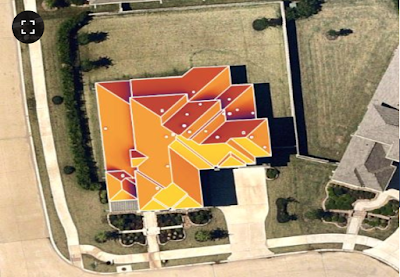On Climate Change:
"For a couple of hundred years we have been telling ourselves that we can dig the midnight black remains of other life forms out of the bowels of the earth, burn them in massive quantities, and that the airborne particles and gases released into the atmosphere - because we can't see them - will have no effect whatsoever. Or if they do, we humans, brilliant as we are, will just invent our way out of whatever mess we have made.
And we tell ourselves all kinds of similarly implausible no-consequence stories all the time, about how we can ravage the world and suffer no adverse effects. Indeed we are always surprised when it works out otherwise. We extract and do not replenish and wonder why the fish have disappeared and the soil requires ever more "inputs" (like phosphate) to stay fertile. We occupy countries and arm their militias and then wonder why they hate us. We drive down wages, ship jobs overseas, destroy worker protections, hollow out local economies, then wonder why people can't afford to shop as much as they used to. We offer those failed shoppers subprime mortgages instead of steady jobs and then wonder why no one foresaw that a system built on bad debts would collapse.
At every stage our actions are marked by a lack of respect for the power we are unleashing - a certainty, or at least a hope, that the nature we have turned to garbage, and the people we have treated like garbage, will not come back to haunt us."
This Changes Everything: Capitalism vs. The Climate by Naomi Klein
On Joy:
"The Dalai Lama was describing the Buddhist concept of mudita, which is often translated as "sympathetic joy" and described as the antidote to envy. Mudita is so important in Buddhism that it is considered one of the Four Immeasurables, qualities we can cultivate infinitely. The other three are loving-kindness, compassion, and equanimity. "
"Mudita recognizes that life is not a zero-sum game, that there is not just one slice of cake in which someone else's taking more means we get less. Mudita sees joy at limitless."
The Book of Joy: Lasting Happiness in a Changing World by Dalai Lama XIV, Desmond Tutu, Douglas Carlton Abrams
On Indebtedness:
"To be indebted is to fixate on the future. I tense up after good fortune has landed on my lap like a bag of tiny excitable lapdogs. But whose are these? Not mine, surely! I treat good mortune not as a gift but a loan that I will have to pay back in weekly installments of bad luck. I bet I'm like this because I was raised wrong - browbeaten to performs compulsory gratitude. Thank you for sacrificing your life for me! In return, I will sacrifice my life for you!
I have rebelled against all that. As a result, I have developed the worst human trains: I am ungrateful. This book too is ungrateful. In my defense, a writer who feeling indebted often writes ingratiating stories. Indebted, that is, to this country - to whom I, on the other hand, will always be ungrateful."
Minor Feelings: An Asian American Reckoning by Cathy Park Hong
On Weakness:
"Now, we should also realize that the recognition of our own limitations and weaknesses can be very positive. This can be wisdom. If you realize that you are inadequate in some way, then you develop effort. If you think, everything is fine and I'm okay just as I am, then you will not try to develop further. There is a Tibetan saying that wisdom is like rainwater - both gather in the low places. There is another saying that when the spring bloom comes, where does it start? Does it start on the hilltops or down in the valleys first? Growth begin first in the low places. So similarly if you remain humble, then there is the possibility to keep learning. So I often tell people that although I'm eighty years old, I still consider myself a student."
- Dalai Lama XIV
On Humility:
"The word humility actually comes from the Latin word for Earth or soil, humus... Humility literally bring us back down to Earth, sometimes with a thud."
"Humor like humility, comes from the same root word for humanity: humus. The lowly and sustaining earth is the source for all three words. Is it any surprise that we have to have a sense of humility to be able to laugh at ourselves and that to laugh at ourselves reminds us of our shared humanity?"
- Douglas Carlton Abrams






































